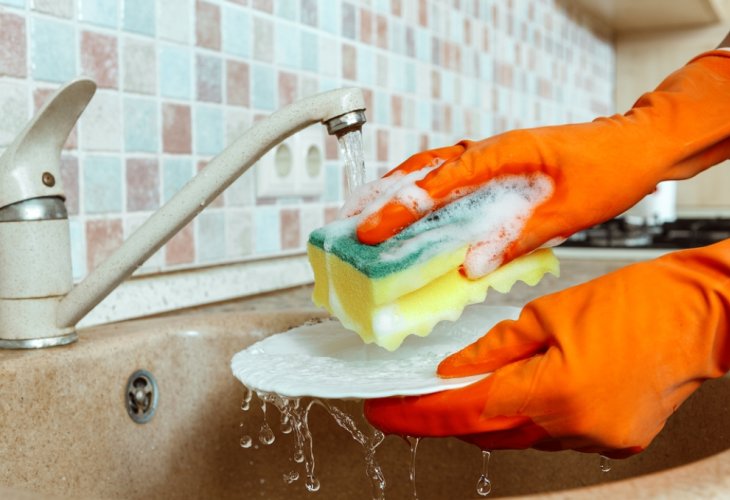Meet the Most Contaminated Item in Your House and a Simple Solution
The dirtiest item in your house, which harbors billions of bacteria, some harmful, is... the kitchen sink sponge. How often should it be replaced, according to research?
 (Photo: shutterstock)
(Photo: shutterstock)You won't believe how much washing dishes at home spreads bacteria, sometimes extremely aggressive and antibiotic-resistant, between the plates, cutlery, and pots.
A new study reveals that the sponge we all use for dishwashing is much more contaminated than we think. Instead of laboring and disinfecting it, adopt this blessed habit: make sure to replace it as frequently as possible.
The new research adds to previous studies on the subject and proves beyond any doubt that the "innocent" cleaning pad is extremely contaminated and contains enormous amounts of bacterial colonies. Some of the bacteria are antibiotic-resistant and can cause diseases.
It's important to understand that cleaning pads harbor food residues, dirt, and bacteria. To make matters worse, the damp environment they exist in helps bacteria and viruses develop at tremendous speeds.
The research findings were published in the journal Scientific Report, where researchers detail the health hazards of heavily used cleaning pads.
During the study, researchers took 28 samples from 14 used dish sponges. The samples underwent hundreds of genetic tests with advanced instruments, revealing horrifying findings: an enormous amount of over 10 billion bacterial cells per square centimeter. This is a staggering quantity, placing cleaning pads at the dubious top spot of the most contaminated item in the house.
The bacterial population is also far from joyous: researchers found that 5 out of 10 bacterial strains found on the sponges have the potential to cause disease in humans. Among these bacteria is Acinetobacter, one of whose strains is common in intensive care units and is resistant to most types of antibiotics.
Another bacterium found on the cleaning pads is Staphylococcus, which causes skin infections and severe infections in internal organs in extreme cases, and perhaps worst of all: the notorious Streptococcus, "the flesh-eating bacteria," which causes throat infections and can also harm heart valves.
The researchers further demonstrated that previously suggested methods, such as microwaving or boiling the pads, successfully removed only 60% of the bacterial amounts on the cleaning pads.
Researchers recommend replacing cleaning pads frequently: "Our study showed that cleaning pads contain large and extensive amounts of bacteria than previously known," the researchers conclude. Our recommendation is to replace the cleaning pad frequently - at least once a week."

